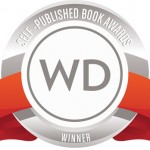You probably thought I’d died or got lost while climbing Mt. Ranier (Hah! With my knees, I can’t even hike up Badger Mountain behind my house and it’s not really a mountain…more like an elevated hill.)…or…was secretly off on some remote location for the next episode of “Survivor.”
After all, why would a writer stop blogging for three months? Other than my shoulder surgery and recovery, the main reason is this.
It only took about a month (and the help of a very web tech-savvy friend) to get the new Storymakers website up and running, but it’s taken another two to get little things ironed out and get comfortable enough with the routine of site maintenance so that I’m ready to delegate much of it to my committee members.
Just in time, too, because I’m hoping to meet up with all of them at the annual LDStorymakers Writers Conference next week in Salt Lake City. There, I can sit down with them and show them the ropes (if they haven’t yet figured it out from my way-too-dense instructional email).
By the way, if you’re a Storymaker and planning on attending, please don’t miss the Meet and Greet on Thursday, May 5th at 8 pm in the hotel. Not only will you be able to meet and socialize with fellow Storymakers and begin to put faces to names, but you’ll get:
- an introduction to the Board of Directors and its various responsibilities (so that you might be more inclined to volunteer your services for certain positions, such as mine…hint, hint)
- a brief demonstration of the new site…AND
- a chance to be interviewed (bring a copy of your latest book, even if it’s 5+ years old) for future placement in the Featured Video section of the website’s home page.
The conference should be awesome and I can’t wait to meet a ton of fellow writers, plus agents, editors, and publishers. (I’m pitching to Sara Megibow with Nelson Literary Agency.)
In any case, no more excuses. I promise to check in at least twice a week from here on out (since I don’t foresee any other website creation in my future).
Originally posted 2011-04-26 09:24:43.



